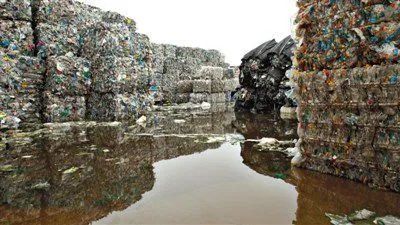In 2025, the import ban on waste plastics from Thailand and Indonesia is coming: a turning point or a challenge for environmental protection?
In the current global wave of environmental protection, a heavyweight news is like a giant stone thrown into the surface of the plastic industry - in 2025, Thailand and Indonesia will both wield the "sword of prohibition" and say "no" to imported waste plastics.
This may seem like a simple trade policy adjustment, but in reality, it can have far-reaching implications and far-reaching effects.

Thailand: Resolutely Say 'No' to 'Foreign Garbage'
Thailand, this passionate land of Southeast Asia, has long been plagued by plastic waste. About 2 million tons of plastic waste generated annually in our country, like stubborn stains, only 25% can be properly recycled, while the rest is either piled up or pollutes the ecology.
To make matters worse, foreign "garbage" continues to pour in, with a high import volume of 372000 tons of waste plastics in 2023. These plastic wastes that have drifted across the ocean not only occupy valuable land, but also decompose into harmful substances under the sun and rain, infiltrating the soil and polluting water sources, putting the original Thai coastal and jungle ecology at risk.
Fortunately, a turning point has emerged, and the Ministry of Natural Resources and Environment stepped forward to propose a ban. Congress quickly responded and approved it in December, which was published in the official magazine. Starting from January 1, 2025, industrial factories will no longer be able to take shortcuts by importing waste plastics.
This is a firm step towards Thailand's green future, with the goal of achieving 100% recycling and reuse of plastic waste by 2027, reshaping the ecological home.

Indonesia: Protecting our homeland, cutting off the 'plastic chain'
Indonesia, also located near the equator, is also suffering from plastic waste. In 2022, the import of plastic waste exceeded 194000 tons, and by 2023, nearly 40% of the waste was in a state of neglect, with plastic waste accounting for nearly 20%.
They scatter freely in rivers and beaches in Indonesia, threatening the survival of marine life, causing sea turtles to ingest them, suffocating coral reefs, and indirectly affecting the health of people who rely on the sea for a living. From damage to fisheries to an increase in respiratory diseases, plastic waste has become a "stumbling block" for development and health.
So, Indonesian Environment Minister Hanif made a resounding statement: no more plastic waste will be imported by 2025! And a strict monitoring system should be established to collaborate with law enforcement forces from all parties to ensure the effectiveness of the ban. This means that Indonesia is determined to intercept the flood of plastic waste from the source and build a solid defense line for the local ecology and the quality of life of the people.

Global Ripples: Industrial Reshaping and Green Renewal
The bans imposed by Thailand and India are not isolated actions, but have caused ripples around the world. For developed countries, the long-term reliance on exporting plastic waste for "garbage disposal" has been broken, forcing them to re-examine the construction of domestic plastic recycling systems, increase investment in recycling technology research and development, and reduce plastic usage from the source, such as promoting biodegradable material packaging.
In the plastic recycling industry, the industry chain that originally focused on exports needs to undergo rapid transformation. Enterprises must either upgrade their technology, enhance their domestic sorting and processing capabilities for waste plastics, and produce high value-added recycled products; Either open up new markets and explore legal and environmentally friendly alternative sources of raw materials in other regions of Southeast Asia or Africa.
For the vast majority of consumers, this is also a warning bell, prompting us to reduce our daily consumption of disposable plastic products, bring our own shopping bags when going out, and use reusable tableware, because every small action is helping to reduce the burden on the earth.




